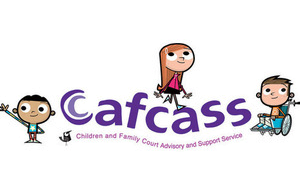Once in a while you hit on a wonderful website that makes you realise some people have got their heads screwed on and won’t allow the systems at play to fool them. One such is Voice of the Child.
There are a lot of people complaining online about how the family court system works and saying they’ve been treated unfairly. Of course some of the complaints are unjustified but an awful lot aren’t. They stem from the way in which the family court system operates and the poor standards amongst those organisations which are there to assist the courts in making decisions. One such organisation which in my view is failing families badly is CAFCASS. I’ve had my own reasons to suspect the motives and expertise in this organisation for a long time through my work as a Children Panel solicitor. The way CAFCASS officers perform their work, their lack of training, their use of assessment tools that have little or no validity, their inability to answer properly questions about how they work and their failure to follow up families to see what’s happened after their involvement, can all have a terrible and unfair impact on families.
Take a look at all the issues Voice of the Child raises and then ask yourself would you want to have CAFCASS making recommendations about your children or indeed anybody’s children.
Just one example is their Domestic Abuse Perpetrator Programmes (DAPPs) and you can explore this more fully on the Voice of the child website. CAFCASS say this about their Domestic Abuse Perpetrator Programme (DAPP):
‘The Domestic Abuse Perpetrator Programme (DAPP) aims to help people who have been abusive towards their partners or ex-partners to change their behaviour and develop respectful, non-abusive relationships.
Taking part in DAPP can make a real difference to the lives of those involved, including children who have been affected. But it can be challenging and the court will make decisions about contact based on the progress a participant makes during the programme.
In most cases, Cafcass will assess a person’s suitability for the programme and will check whether it is available locally. We will only make a referral following a court order.’
The Voice of the Child made these FOI requests in December 2018:
1. What is the success rate from these DV cases?
The reply:
‘CAFCASS does not have data on the success rate of Domestic Abuse Perpetrator Programmes (DAPPs).’
2. How many times has it been proven that a CAFCASS officer placed a child at risk with their report they shared with the court that helped the judge make a final order.
The reply:
‘CAFCASS does not have data or statistics on this issue.’
These programmes are managed by outside providers (very probably a good thing ), and not by the CAFCASS officers who rely on these courses and write reports based on the programme outcomes and recommendations. They should know why they’re using these tools and whether and how they have been evaluated. Yet they are happy to answer the questions raised by Voice of the Child in such an offhand way, taking no interest it seems in the impression they give.
A very quick search online about DAPPs produces more information than CAFCASS themselves came up with. For example Southampton University has produced a Process and Outcomes Evaluation written by Dr Sara Morgan and Professor Julie Parkes and there are other interesting references too. They draw some important conclusions. Firstly, they found that ‘post-perpetrator programme questionnaires identified positive changes in both emotional behaviours and physical behaviours amongst clients, which were also supported by examples of improved relationships with their children described in survivor interviews.’ Secondly, though, they also found that ‘over the monitoring period, 1 in 5 clients were either suspected or convicted of domestic abuse crimes following the programme. This suggested that further maintenance of positive behaviours and reinforcements are required for some clients. Given that clients felt children were a strong motivating factor for completing a programme, it seemed paradoxical that no specialist services were made available for them. Future reiterations of the DAPP model should at least address how best to work with children in families where domestic abuse occurs.’
CAFCASS either don’t know about these evaluations or can’t be bothered to explain or defend their reliance on the DAPP programme. Which I wonder? The research conclusions are important and should be part of any public debate about the effectiveness of interventions with families in the family court.
What might be going on in the mind of CAFCASS to produce the responses they gave to Voice of the Child? How can an organisation be trusted if it either doesn’t know or care whether what it’s doing is effective or how it might be improved, or simply doesn’t care about how stupid and careless they appear to be, or perhaps wants deliberately to avoid any scrutiny or discussion of what it is doing and how it could be improved.

